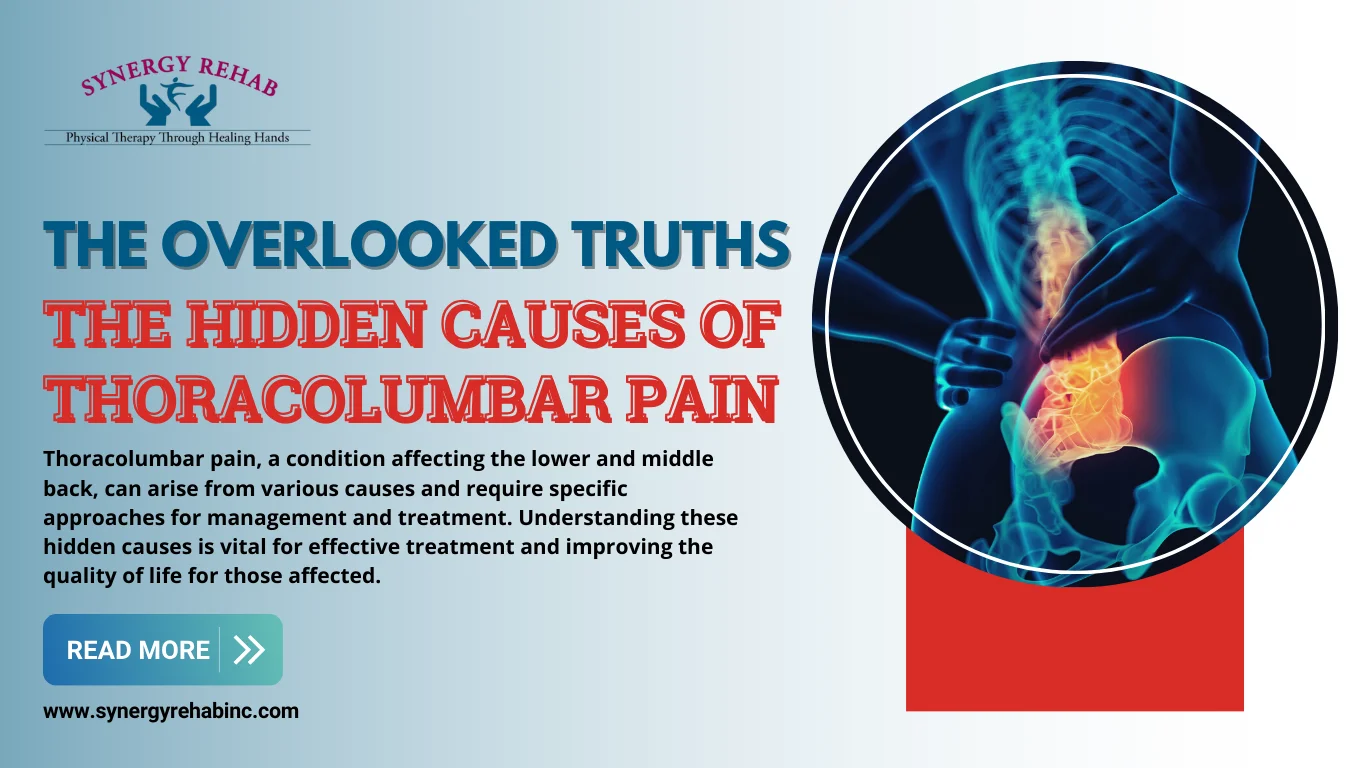The Overlooked Truths: Know the Hidden Causes of Thoracolumbar Pain
Thoracolumbar pain, impacting the lower and middle sections of the back, can have diverse origins, each necessitating a tailored approach for effective management and treatment. This condition encompasses a broad spectrum of potential issues, ranging from structural abnormalities to nerve-related problems and even muscle strain. Understanding all these hidden causes is vital for effective treatment and improving the quality of life for those affected. Hidden Causes of Thoracolumbar Pain Thoracolumbar Scoliosis Image Courtesy: Healthline One significant cause of thoracolumbar pain is scoliosis, particularly thoracolumbar scoliosis. This condition results from a curvature in the spine, leading to pain due to spinal deformity, nerve compression, or muscular fatigue. In adults, scoliosis is often linked to spinal degeneration and osteoporosis, causing the spine to become less flexible and more prone to pain. While bracing is an effective treatment for adolescents, adults have a narrower range of treatment options, often involving a combination of exercises, stretching techniques, rehabilitation therapy, and chiropractic care. Thoracic Back Pain Thoracic back pain, another aspect of thoracolumbar pain, can stem from various causes. Common causes include inflammation due to sprains or strains, poor posture, repetitive overuse injuries, and sitting for prolonged periods. Less common causes include spinal stenosis, slipped discs, fractures, osteoporosis, spinal infection, and even conditions affecting the organs around the thoracic spine. Mental health issues and poor posture are also associated with thoracic back pain. While thoracic back pain is usually not serious and often resolves without specific treatment, it can be a symptom of more severe health issues, hence the importance of proper diagnosis and treatment when pain persists or is severe. Thoracic Radiculopathy Radiculopathy, a condition involving nerve pain, can also contribute to thoracolumbar pain. It occurs when spinal nerves are compressed or irritated, leading to symptoms like pain, tingling, numbness, and muscle weakness. Thoracic radiculopathy specifically causes pain in and around the chest. The causes of radiculopathy include traumas, bone spurs, and herniated discs. Treatments for radiculopathy may include ice or heat application, posture adjustment, physical therapy for back pain, NSAIDs, corticosteroids, and in rare cases, surgery. For individuals in Southfield seeking treatment for back pain, considering options like physical therapy and consulting with the best physical therapists is essential. Specifically, those looking for specialized care can explore options for back pain treatment in Southfield, including physical therapy and consultations with the best physical therapists in the area. Thoracolumbar pain can be a complex condition with various underlying causes. Understanding these causes is crucial in developing an effective treatment plan. Seeking professional advice and considering all available treatment options, including specialized physical therapy by the best physical therapists in Southfield, can help manage and alleviate thoracolumbar pain effectively. If you’re grappling with thoracolumbar pain and seeking expert care in Southfield, MI, Synergy Rehab stands ready to assist. Our team of skilled physical therapists specializes in diagnosing and treating a wide range of back pain causes, using state-of-the-art techniques tailored to your specific needs. Whether it’s managing scoliosis-related discomfort, addressing radiculopathy symptoms, or simply enhancing your spine health through targeted exercises and posture correction, we are committed to guiding you toward a pain-free life. Don’t let back pain hold you back any longer. Contact Synergy Rehab today to experience the best physical therapy services in Southfield, and take the first step toward reclaiming your comfort and mobility. Let’s work together to develop a personalized treatment plan that puts your well-being first.



